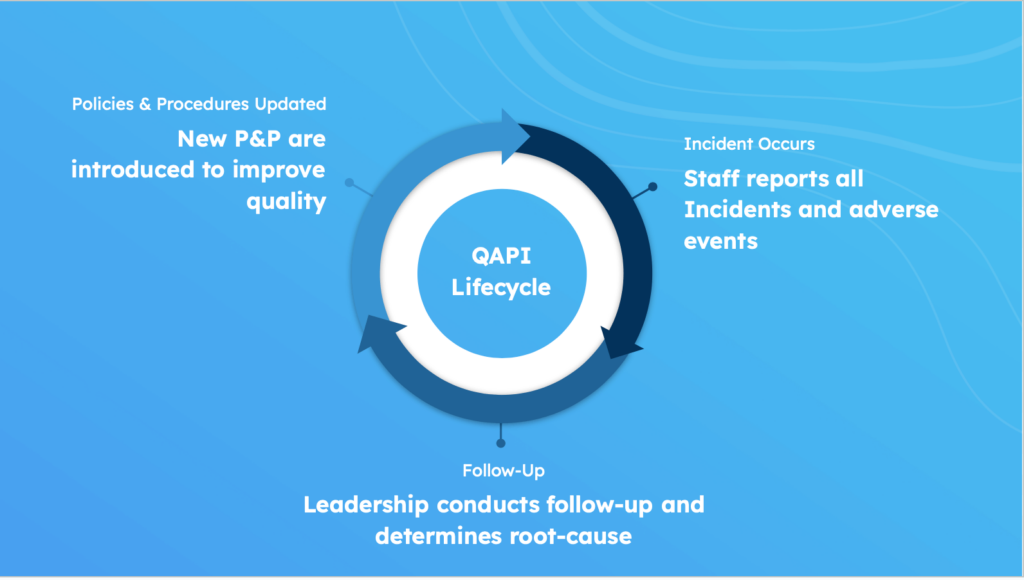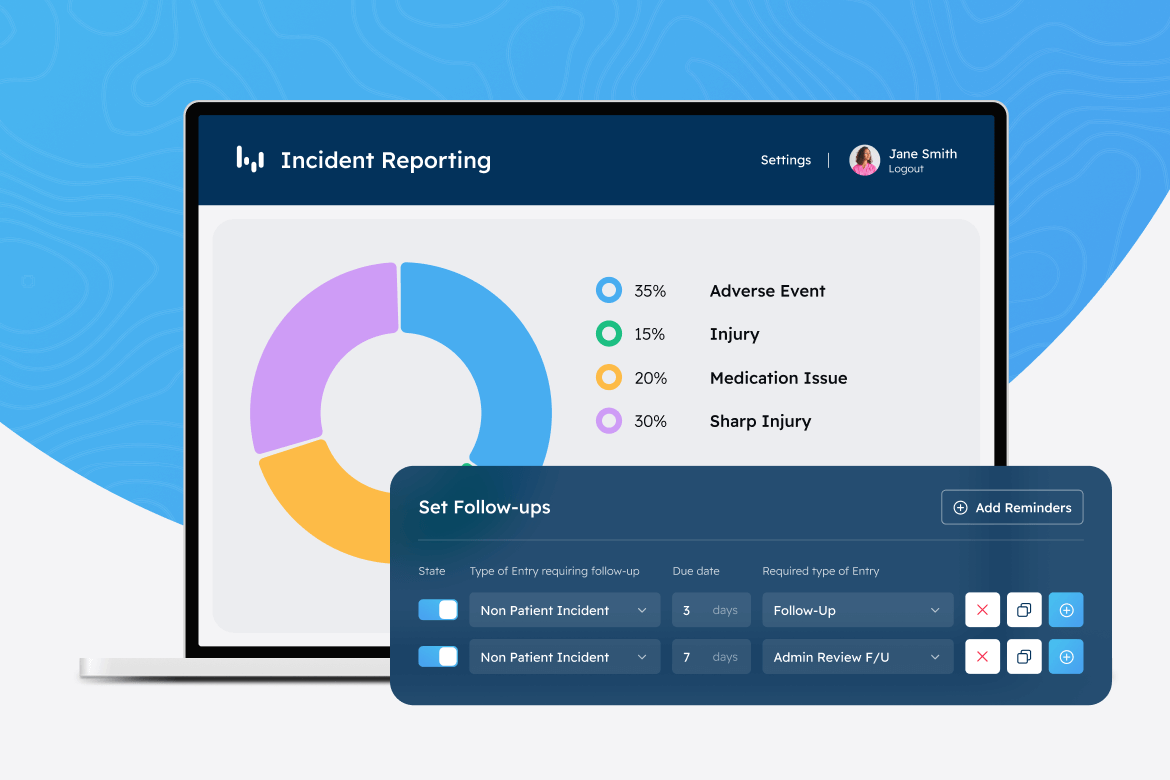In the healthcare industry, where patient safety is especially critical, Ambulatory Surgery Centers (ASCs) play an important role in providing efficient and effective medical care. As centers that perform same-day surgeries, ASCs are dedicated to delivering high-quality services while maintaining a streamlined operational environment. With this in mind, the significance of timely incident reporting cannot be overstated.
Incident reporting is a proactive approach to healthcare management, and also one typically required by accreditation or government agencies. In this blog, we’ll explore the pivotal role that incident reporting plays in ASCs and the ways technology can help make it more efficient along the way.
The Ideal Incident Reporting Workflow
Let’s begin by defining incidents in the context of healthcare. Incidents are defined as any event that is outside of normal daily operations. Incidents vary in degree of severity and certain incidents require mandated reporting (as stated above). Below are just a few examples of incidents that may occur at an ASC:
- Treatment complications
- Falls
- OR (operating room) retained objects
- Anesthesia
- Canceled cases
- Infections
- Incomplete surgery
- And many more…
All staff are responsible for reporting incidents when they occur. Leadership is then responsible for timely follow-up, data collection, and possible education to staff/allied health on incidents/outcomes and best practices or processes.
First, incident reporting should include as much detail as possible, including (but not limited to): descriptions, names, date, times, witness(es), quotes, damage, treatment, actions taken, by who and when. When it comes to incident reporting, it’s essential not to make any assumptions, stick to the facts.
Next, follow-up is needed on all incidents, and the type of follow up is dependent on the incident and factors that potentially caused the incident. How incidents are followed up on is dictated by level of harm or potential level of harm to someone or a process.
Finally, once the incident is reported and followed up on, new policies and procedures must be put into place. Incident reports contribute to a rich source of data for healthcare. Your facility can use this data to identify patterns, trends, and root causes of incidents, leading to evidence-based improvements that benefit your overall healthcare practices.

Importance of Timely Incident Reporting
To put it simply, the main reason timely incident reporting is so crucial is because it’s required. Healthcare accrediting bodies and regulatory agencies mandate incident reporting as part of compliance requirements. Adherence to reporting standards ensures that healthcare facilities meet regulatory expectations and maintain their accreditation status.
However, timely reporting of incidents has many other positive contributions to your ASC facility. First, it promotes a culture of transparency and accountability, fostering an environment where patient safety is prioritized. Additionally, learning from incidents helps healthcare professionals implement preventive measures to reduce the likelihood of similar events occurring in the future.
Solutions for Timely Incident Reporting
The best way to ensure efficiency in your incident reporting workflow is to utilize tools and adopt educational resources that make the process easier. From collecting relevant details, performing follow-up, and keeping record of important policies and procedures.
Tools like Surglogs provide a user-friendly interface for healthcare staff to easily report incidents, ensuring a smooth and efficient process. It allows real-time tracking of reported incidents, enabling quick responses and interventions.
Additionally, by completing digitized versions of incident reports, ASCs gain the ability to customize reporting forms, ensuring that relevant information is captured for operations and compliance requirements. Surglogs’ number one goal is to assist ASCs in meeting regulatory and accreditation standards by facilitating compliance with incident reporting requirements.
The Surglogs support team is also available to offer staff education and training, using reported incidents as learning opportunities to enhance skills and prevent future occurrences.
Find out more about incident reporting and many other features available in Surlogs now.
